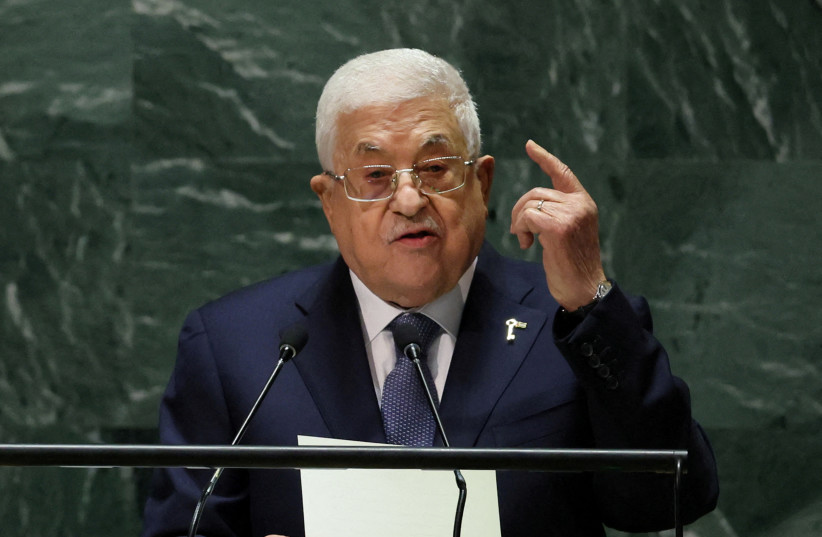Reuters reported on Thursday that Palestinian Prime Minister Mohammad Mustafa formed a new cabinet on Thursday in which he will also serve as foreign minister, making an immediate ceasefire and Israeli withdrawal from Gaza a priority, Palestinian news agency WAFA reported.
Mustafa, an ally to President Mahmoud Abbas and a leading business figure, was appointed premier this month with a mandate to help reform the Palestinian Authority (PA,) which exercises limited self-rule in the Israeli-occupied West Bank.
He was also assigned to lead the relief and rebuilding of Gaza, which has been shattered by more than five months of war. He performs double duty as foreign minister, replacing Riyad al-Maliki, who had served in the position since 2009.

Abbas, who as president remains the most influential figure in the PA, appointed the new government to demonstrate willingness to meet international demands for change in the administration.
WAFA said he approved Mustafa's cabinet, which included financial expert Omar al-Bitar as finance minister and Muhamad al Amour, president of the Palestinian Businessmen Association, as economy minister. He kept Ziad Hab al-Reeh, former chief of the PA's internal intelligence agency, as interior minister.
The new cabinet, which includes eight ministers from Gaza, will also include a state minister for "relief affairs."
Mustafa said in a statement addressed to Abbas that the first national priority was an immediate ceasefire in Gaza and a complete Israeli withdrawal from the enclave, in addition to allowing humanitarian aid to enter in large quantities and reaching all areas, WAFA reported.
"In order to enable the launch of the recovery process and preparation for reconstruction, stop the aggression and settlement activities, and curb settlers' terrorism in the West Bank," Mustafa added.
Hamas, the Islamist movement that controlled Gaza until Israel's invasion in the wake of the Oct. 7 attack on southern Israel, has criticized the appointment of Mustafa. Still, it had no immediate reaction to naming his new cabinet.
Strained relations: PA and Hamas
The PA, controlled by Abbas' Fatah political faction, has long had a strained relationship with Hamas, and the two factions fought a brief war before Fatah was expelled from the territory in 2007.
However, it has repeatedly condemned the Israeli invasion of the Gaza Strip. It has insisted it must play a role in running Gaza after the war, a position supported by the United States.
For the moment, Israeli Prime Minister Benjamin Netanyahu has rejected PA involvement in Gaza. For months, his hard-right finance minister, Bezalel Smotrich, has refused to hand over tax revenues due to the Authority, which still funds health and other services in the enclave.
For months, thousands of Palestinian public sector employees have gone unpaid or received only a part of their salary as a result of the standoff. Mustafa said the government was taking office during an "unprecedented financial crisis."
He said salary arrears owed to public sector employees totaled $745 million US dollars, with another $1.3 billion US dollars owed to private sector suppliers and $3 billion US dollars more in pension arrears. Revenues in January were down 30% compared to before the war.
